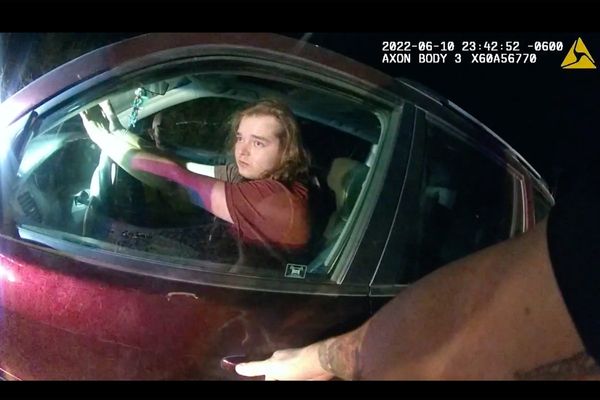
An insurance giant stopped 14% more claims last year due to suspected fraud than it did in 2023.
Aviva said it uncovered around 35 bogus claims per day typically last year.
It detected more than 12,700 suspect claims in 2024, totalling around £127 million.
Aviva’s 14% annual rise in detected claims fraud last year follows a 39% annual increase in 2023.
The insurer said motor-related fraud accounts for three out of every four bogus claims it deals with.
Aviva has seen a trend of fraudsters moving away from deliberate personal injury fraud such as “crash for cash”, and an increase in the number of exaggerated claims for injury.
Fraudsters are also increasingly looking to exaggerate and inflate the cost of repair and hire claims, the insurer said.
It also highlighted problems with “spoof ads” where motorists search online for their insurer’s details following a motor accident but end up clicking on a claims firm ad which they think is their insurer. This can lead to people unwittingly dealing with a third party firm rather than their insurer, Aviva said.
Organised fraudsters are also pursuing bogus and exaggerated claims for injury, such as a staged slip, trip or fall.
Meanwhile, exaggerated or fabricated claims for household items account for one in 10 fraudulent claims Aviva detects.
The insurer said the growth in this type of fraud is “mostly opportunistic”, as claimants, perhaps still affected by the cost of living, attempt to inflate their claim.
Mobile phones, TV, jewellery, laptops, tablets and watches are common items included in inflated claims.
Commercial insurance has also seen a “marked increase” in fraudulent claims costs, including exaggerated escape of water claims, Aviva said.
Commercial motor insurance fraud also increased annually. As with commercial property, exaggerated costs were the leading factor, Aviva said.
The insurer has also seen a rise in insurance applications fraud. It identified fraud on more than 98,000 insurance applications in 2024, which was nearly double (a 92% increase) the volume detected in the previous year.
Within the figures, there has been a rise in bogus applications linked to ghost brokers – who are not real brokers but criminals selling policies which are not valid because the details have been altered to artificially bring down the price. Young drivers, such as students, are often targeted by ghost brokers.
Aviva said it has invested in counter-fraud capabilities at the quote and application stage, to help protect young drivers from ghost brokers online.
The insurer said that as well as investing in analytics and training, it is also working with various police bodies to help thwart criminal activity.
Pete Ward, head of claims counter fraud at Aviva, said: “The overwhelming majority of our customers are honest, and we are committed to settling their claims quickly. But where we detect insurance fraud, we have a responsibility to protect our customers from its harmful effects and additional costs.”
Mr Ward said that “a backdrop of ongoing economic hardship” is a “contributing factor” to insurance fraud.







